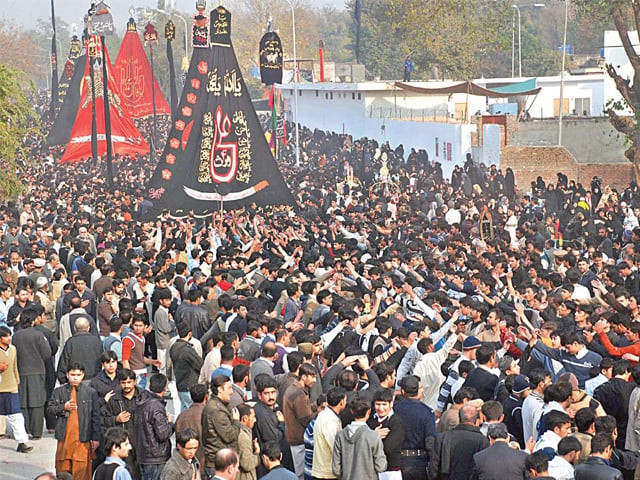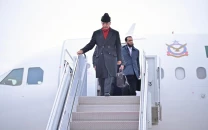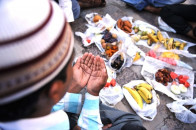Sindh police divided over who the culprits are

Sindh police divided over who the culprits are
While CCPO Karachi, Waseem Ahmed, is on record for having declared Jundullah as the group behind the attacks, a camp within his own force says that the four suspects –Shah Murad, Murtaza Inayat, Mohammad Wazeer and Shakeeb Farooqi — who were arrested in the case and later escaped from court premises on June 19 might not be involved at all.
“However, that is not to say that the suspects arrested weren’t terrorists,” said a senior investigator speaking on the condition of anonymity. “Their violent escape from court proves that they were indeed militants. But, we have reservations about the investigations into the Ashura case and the subsequent declaration that Jundullah was behind it.”
This doubt has become stronger with the press conference of CCPO Lahore, Aslam Tareen, on Monday July 5, in which he said that his team has nabbed eight terrorists, who were involved not only in the attacks on the Ahmadi community in the city, but also in the Ashura blast in Karachi.
SP Crime Investigation Agency Lahore, Omer Warak, said that the suspects in their custody are associated with Harkat al Jihad Islami, which is a group based in the north of the country. He claimed that his team has strong evidence that links the suspects with the Ashura blast. “Also, one of the suspects is a resident of Karachi,” said Warak.
Ahmed, when asked about the CCPO Lahore’s statement, said that he was in touch with his counterpart in Punjab. “We are sending a police party to Lahore immediately to interrogate the suspects in their custody,” he said, adding that he would be able to give more details once the team returns and files its report.
Officials of the Crime Investigation Department, Karachi, confirmed that information regarding the case has been provided by Lahore and that they are examining the new links.
SSP Special Investigation Unit, Karachi, Raja Umer Khattab, who nabbed the four alleged Jundullah militants supposedly involved in the Ashura blast, said that he is unaware of the CCPO Lahore’s statement as he has just returned from London. “However, I think the person they are claiming to be from Karachi was one of the suspects who had escaped from a militant hideout in Baldia, where militants themselves had detonated an explosive by mistake,” Khattab said, adding that the Baldia terrorists had no connection with the Ashura blast.
The history of Jundullah
SSP Investigation Farooq Awan, who until recently was heading the Anti-Violent Crime Cell (AVCC) and is considered by many as instrumental in wiping out the first and second tier leadership of Jundullah, said the group had not been involved in sectarian attacks in Karachi if one studies their history prior to the Ashura attacks.
“Their targets have always been important personalities, organisations and diplomatic enclaves,” said Awan. Apart from the corps commander attack, the militant group is said to have been behind the bomb explosion in a parking lot near the American consulate, the blast at the Pakistan American Cultural Centre, the blast outside a concert hall during Indian singer Sonu Nigam’s performance, the blast at the Bible Society; attack on Gulistan-e-Jauhar Police Station, and an attack on a Rangers van.
“The first two tiers of Jundullah were definitely anti-state and anti-American. If the new leadership has now taken a sectarian angle, I can’t say,” said Awan.
Officials on condition of anonymity insist that there are loopholes in the investigations into the Ashura attack and that things are only now coming to the surface. But if Jundullah wasn’t involved, who was? That question remains to be answered.
Published in The Express Tribune, July 8th, 2010.



















COMMENTS
Comments are moderated and generally will be posted if they are on-topic and not abusive.
For more information, please see our Comments FAQ